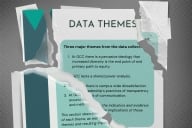You have /5 articles left.
Sign up for a free account or log in.
In 1980, the U.S. Supreme Court ruled that professors at Yeshiva University had too much managerial authority to be eligible to form a union. And ever since, conventional wisdom has had it that unionizing faculties of private colleges is a non-starter.
Well, not quite. In the past few years, several organizing drives have made headway -- legally and in gathering campus support. But with the Yeshiva decision no longer assuring private colleges of the ability to keep unions out, a new tool is emerging: religious freedom. The National Labor Relations Board agreed on Wednesday to consider whether Carroll College in Wisconsin can bar a faculty union because of the college's Presbyterian roots.
The college's legal tactic has infuriated faculty members at Carroll, who question just how religious the college is and say that administrators are hypocritically turning to faith when their real goal is just to block the union. The outcome is important beyond Carroll because a number of the private colleges where professors have explored unionization in recent years do have ties to various faiths.
And precisely because Carroll isn't the most religious college around, a victory for the college could preclude union campaigns at many institutions.
"This could be a dramatic decision for unionization campaigns," said Richard Boris, executive director of the National Center for the Study of Collective Bargaining in Higher Education and the Professions, at Hunter College. A win for Carroll, Boris said, could have the impact of "undoing" NLRB rulings that have allowed organizing drives to push ahead at some private colleges. "It's going to be very interesting to see, Is a religious affiliation sufficient to 'protect' a college from unionization?"
Many of the disputes at Carroll have nothing to do with religion. The would-be faculty union, which is affiliated with the United Auto Workers, primarily talks about (and differs with administrators over) issues of pay, benefits, working conditions and tenure decisions.
Carroll has objected to the organizing drive from the start, and has argued against its legality on a variety of grounds, including the religion issue and also issues related to the Yeshiva decision's precedent that professors with considerable power can't unionize. But in a decision in January, a regional office of the NLRB rejected all those arguments and ordered a union vote to proceed.
The January ruling said that professors at Carroll don't have enough authority to be considered managers. And on the religion question, the decision noted that the Presbyterian Church does not own the college or its facilities, appoint trustees, set the curriculum or campus rules, or play a role in hiring. So the ties to a religious group, the ruling said, did not come close to where a union election would raise First Amendment issues.
Faculty members voted in February on the union, but the results were held back when Carroll asked the NLRB to overrule its regional office's decision. In announcing Wednesday that it would consider the appeal, the NLRB said that it was rejecting most of Carroll's arguments, but would consider the religious issue.
David F. Loeffler, a lawyer for the college, said religion was central to the college. "Ours is a Christian mission and we expect the faculty to discharge this mission."
He acknowledged that Carroll isn't the most religious institution, but said that it was unfair to assume that religious protections applied only to the most religious colleges. "As we've said, Carroll isn't Bob Jones and it's not even Wheaton, but it's not Lawrence University either," Loeffler said.
Gary Stevens, an associate professor of English and president of the faculty, said the college was using "a smoke and mirrors argument." He said that since he arrived in 1970, the college has become more and more secular -- abandoning chapel requirements, and generally promoting itself as a general liberal arts institution.
Stevens said that the college's bylaws require three members of its board to be Presbyterian ministers, but that the college has ignored the rule for years, and currently has only one. (Loeffler said it was hard for the college to find ministers with the time to serve on the board.)
"The religion argument is a desperate excuse to avoid a union," he said.
Timothy Fiedler, an associate professor of sociology and a member of the union's organizing committee, said, "Carroll is just not a religious institution and this has nothing to do with religion." The issues, he said, are "academic structure, the courses we teach, the number of students we teach."
Faculty members will need to hope that the NLRB agrees that Carroll isn't really religious. If the board accepts Carroll's argument that it is, the college has a strong legal precedent. In 2002, the U.S. Court of Appeals for the District of Columbia found that collective bargaining laws did not apply to the University of Great Falls because the Montana institution is sponsored by two orders of Roman Catholic nuns.
The University of Great Falls was backed in that case by a coalition of religious colleges. Gene C. Schaerr, a Washington lawyer who wrote the colleges' brief, said he thought many of those institutions might also back Carroll.
He said that faculty unions made no sense at religious colleges. "The mere fact of having a union implies that you are going to be bargaining over conditions of employment," he said. And at religious colleges, those conditions involve religion. "If you put a union in the position of bargaining with a college over religious requirements, and at a lot of religious colleges, there are a lot of such requirements, you run a very real risk of chilling the institution from carrying out its religious mission."
Based on the Great Falls ruling, he said, faculty unions don't have much of a shot "at genuinely religious colleges," Schaerr said.
For the NLRB, a key question may just end up being what constitutes a genuinely religious college.








